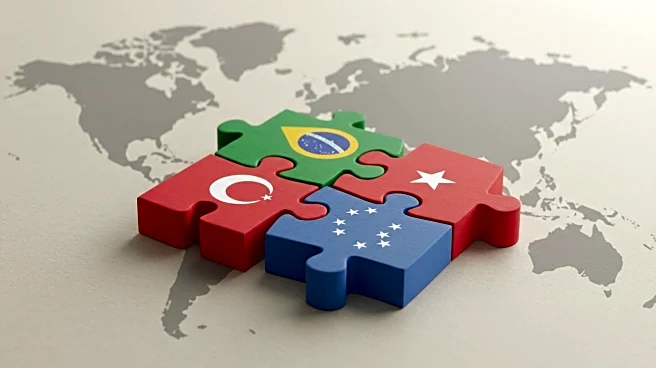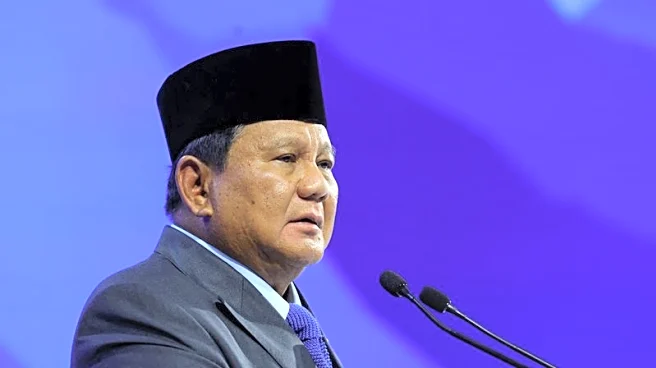What's Happening?
In a meeting rich with symbolism, South Korean President Lee Jae Myung and Japanese Prime Minister Shigeru Ishiba have agreed to work together to address international challenges and advance mutually beneficial interests. This meeting, the first joint document release in 17 years, marks a significant step in improving relations between the two countries. The leaders emphasized the importance of setting aside historical disputes to focus on future-oriented cooperation, particularly in economic and security matters. This diplomatic engagement comes as both countries face common challenges, including North Korea's nuclear ambitions and China's regional influence.
Why It's Important?
The agreement between South Korea and Japan to strengthen their bilateral ties is crucial for regional stability and security. As both countries are key U.S. allies, their cooperation is vital for effective coordination in addressing security threats and balancing China's growing assertiveness. This diplomatic engagement also reflects a broader trend of pragmatic diplomacy, where historical grievances are set aside in favor of future-oriented collaboration. The improved relations between South Korea and Japan could lead to more cohesive policies and actions, enhancing the strategic framework in East Asia.
What's Next?
Following this meeting, both countries are expected to continue their diplomatic efforts to solidify their partnership, potentially leading to new agreements on economic and security matters. The international community will be closely monitoring these developments and their impact on regional dynamics. Additionally, the upcoming summit between South Korean President Lee and U.S. President Donald Trump will be critical in shaping future U.S. policies in the region.
Beyond the Headlines
The focus on South Korea-Japan relations underscores the importance of historical reconciliation in international diplomacy. The leaders' commitment to addressing past grievances while fostering future cooperation sets a precedent for other nations with similar historical conflicts. Additionally, the emphasis on clean energy and artificial intelligence reflects a growing recognition of the need for technological collaboration in addressing global challenges.









